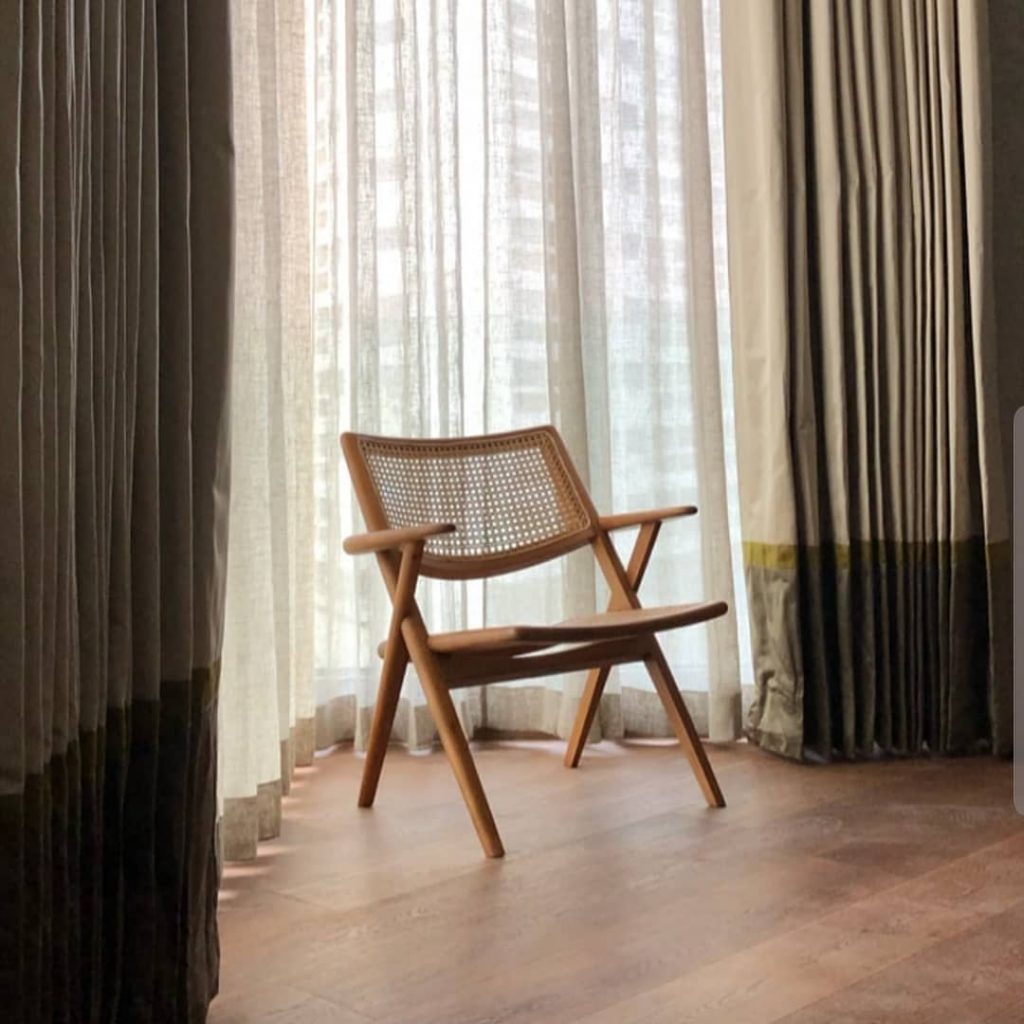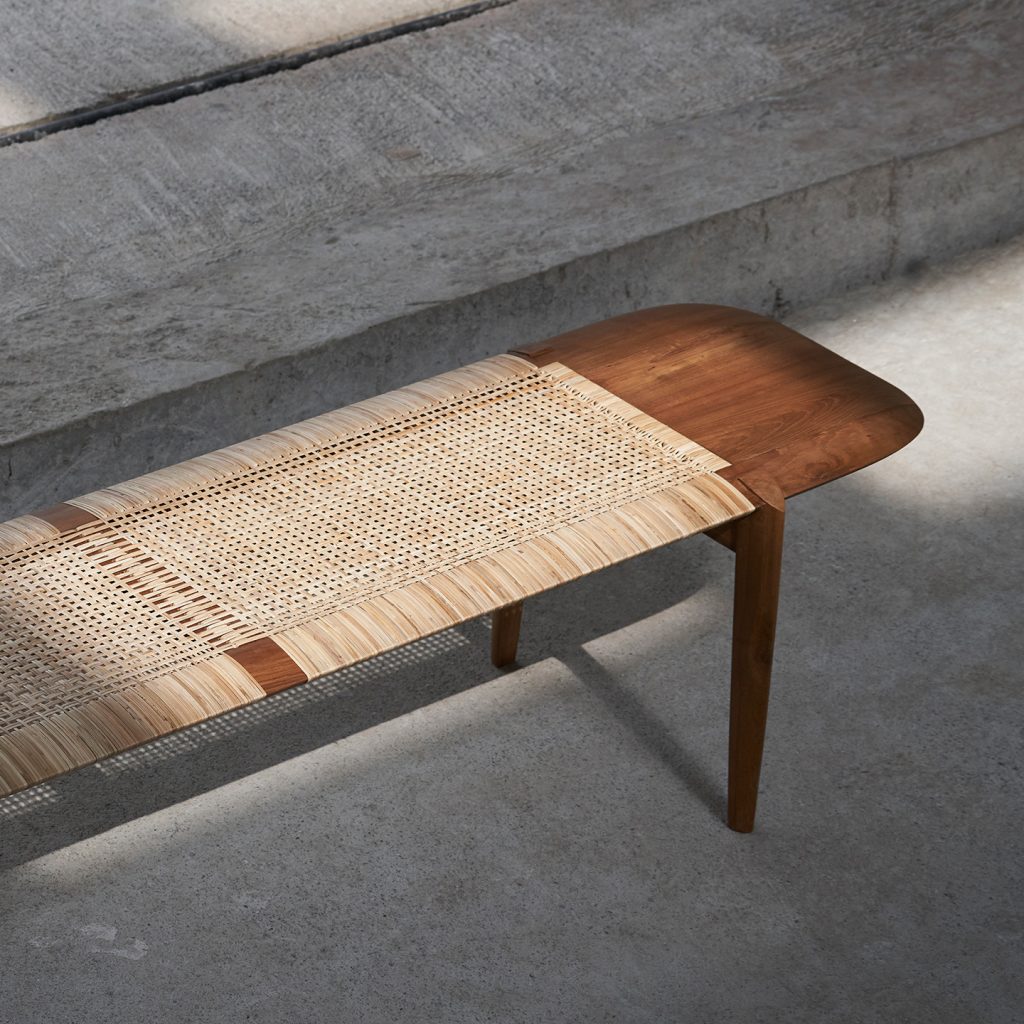STORY OF PHANTOM HANDS
Phantom Hands is an Artisan Collective of traditional woodworkers, cane weavers, upholsterers and other skilled artisans from different parts of India. They make handcrafted furniture based on mid century modern and contemporary design. Their design style can be categorized as Indian Modernism.
Their name ‘Phantom Hands’ is a metaphor for the craftsmen who contribute to the perfection of each piece of furniture. In a sense, each object is a culmination of centuries of craftsmanship and skills, passed on from generation to generation.
At their core, they are about unrelenting commitment to and celebration of fine Indian craftsmanship that is now becoming extinct and upholding these standards in a contemporary world where the economic and cultural landscape make it very challenging to do so.
Phantom Hands was founded in 2013 as an online store for vintage furniture and antiques from India. They curated objects in which quality craftsmanship and attention to detail stood out, both in the design and the making of the object. They loved furniture with an aesthetic that was not ornate and where simplicity, clean lines, proportions and logic of construction stood out.
Along the way we discovered modern Indian furniture design stories such as Pierre Jeanneret and Chandigarh’s modernist period, Art Deco furniture from Bombay, George Nakashima influenced furniture in Ahmedabad as well as the creations of many individual architects and designers for specific projects. With their family heritage of furniture making that goes back over 40 years, the opportunity to apply traditional Indian craftsmanship to make or re-edit these modernist pieces for the contemporary world became our calling.
They decided to focus completely on furniture production and launched their first collection, Project Chandigarh, in May 2015. Our second collection, the Muṅgāru Collection designed by INODA+SVEJE was launched in 2017 and they continue to collaborate with designers and add to our catalog.
photo: Martien Mulder
Manufacturer Phantom Hands
Location Bangalore, INDIA
Artigians 40 people
Web phantomhands.in
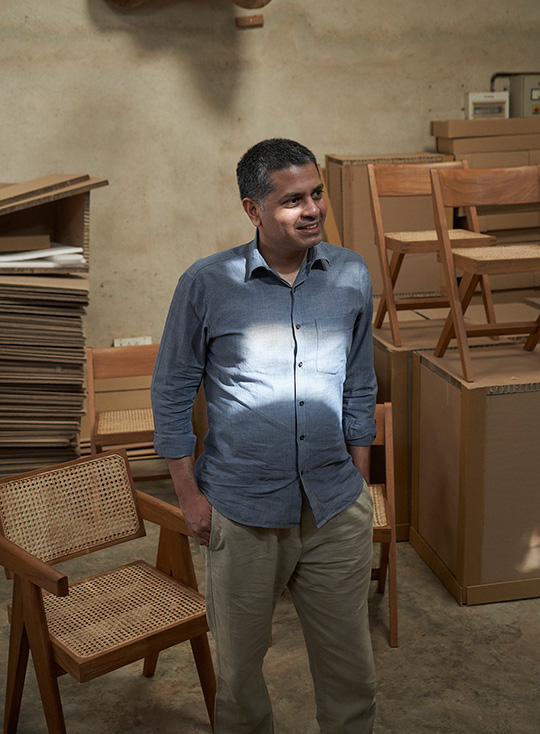
Deepak Srinath – Founder of Phantom Hands
“ We want to take forward the legacy of ‘Indian Modernism’ ”
Prior to founding Phantom Hands Deepak was the founding partner of Viedea Capital, a financial advisory firm for internet and digital media startups in India that he ran for nearly 10 years. With a background in technology, finance and management, Phantom Hands is his third entrepreneurial venture and is a platform to combine his interests in furniture, history, design and the digital world.
We want to take forward the legacy of ‘Indian Modernism’, and that, besides Jeanneret, also includes the influence of the likes of George Nakashima and Charles Eames. The ultimate aim, “to make it as well known as, say, Brazilian Modernism.”
Handcrafted Modernism,
a Short Video on Craft+Design at Phantom Hands
With footage and interviews filmed between 2019 and 2021, this short film offer a glimpse into the process of co-creation between designer and artisan, the essence of product development at Phantom Hands.
Project Chandigarh
The pieces we re-edit and produce in our Project Chandigarh collection are based on designs that are in the public domain. To provide historical context – In the early 1950s, it was decided by the Punjab government of the day that furniture must be created for public buildings in the new city of Chandigarh. The furniture would reflect the modernism of the architecture, but would be adapted to the usage requirements and made by Indian craftsmen with locally available material and skills.
A Design Office was set up under the leadership of Pierre Jeanneret with a team of young Indian designers and architects assisting him. A range of furniture was developed, some were site specific and some used across multiple buildings. The drawings created by the Design Office were given out to several carpentry workshops and model makers with instructions that they could improvise on the design or material as per their judgement and requirement. Therefore there are several variants of each model. These pieces were meant to be freely reproduced and were never licensed to a single manufacturer. Over the years the designs became pervasive and the same style of chairs could be seen in government offices and private spaces in other Indian cities like Bangalore and Delhi too.
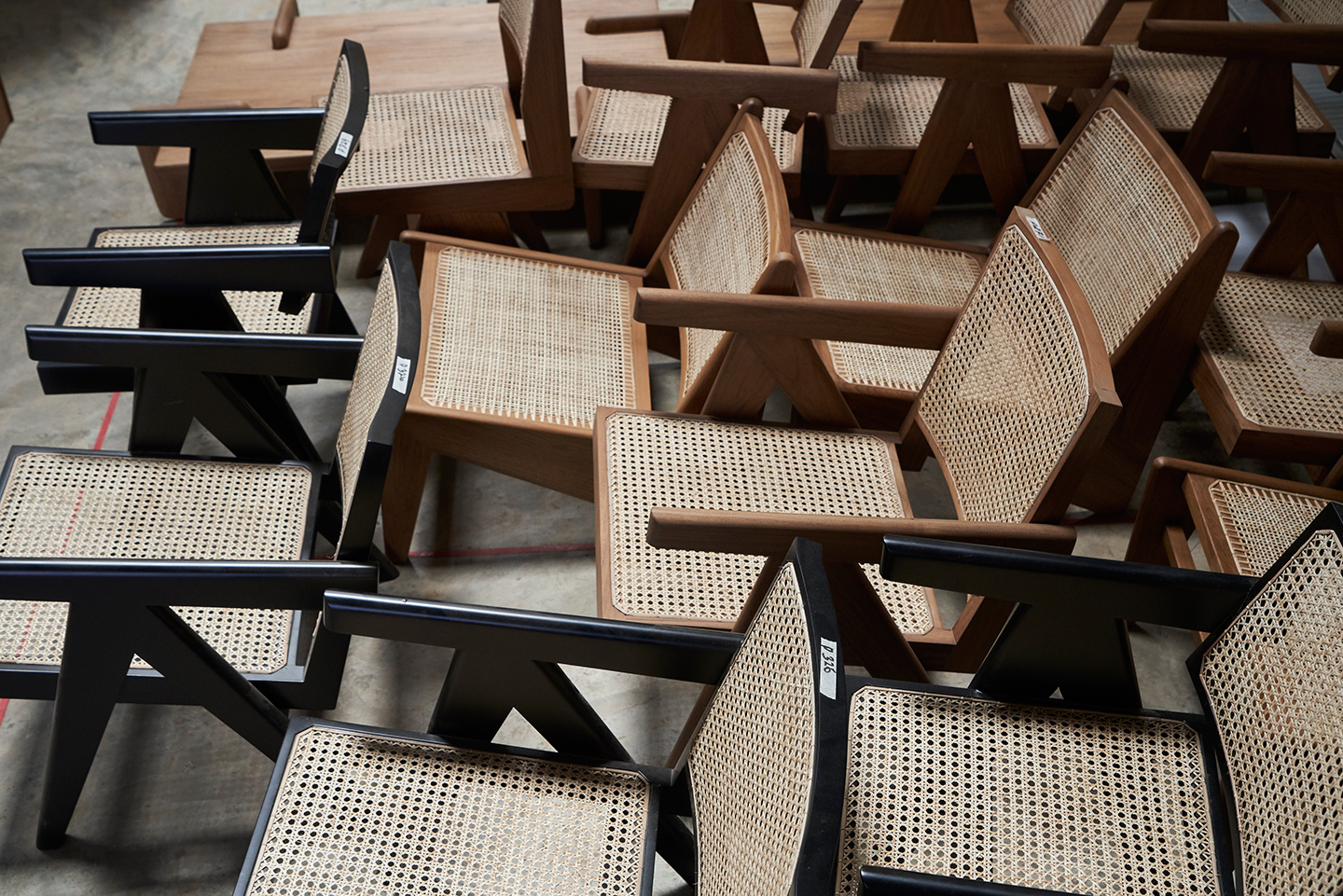
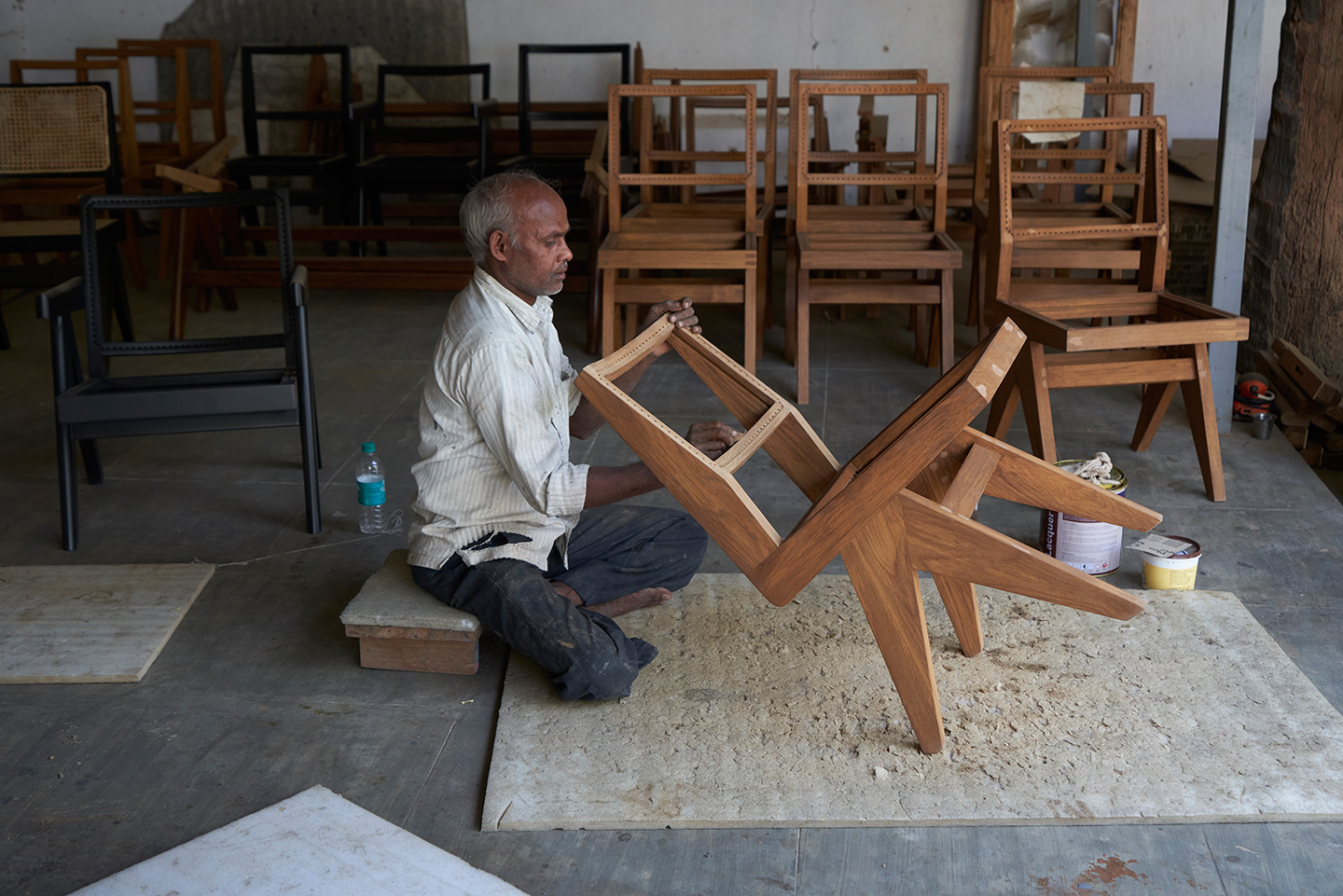
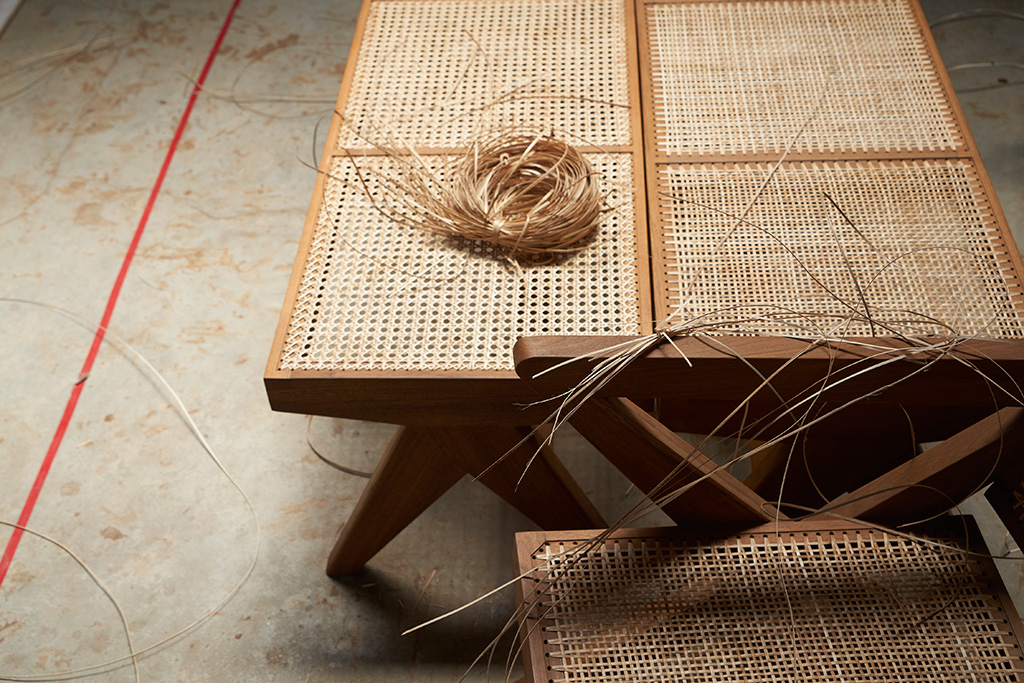
Project Chandigarh evolved as our homage to Indian modernism, a style and philosophy of making that manifested in Chandigarh. Our pieces are made by hand, using material and craftsmanship that is nearly the same as was used in the 1950s. The nuances and details that make these designs special – finger joints, radius of the arms and legs, various joineries – are all made with hand tools. The natural rattan cane we use for the seat and back are peeled and woven by hand by highly skilled weavers.

This legacy of Indian Modernism is carried forward in our collaborations with contemporary designers such as INODA+SVEJE from Milan and X+L from Amsterdam. The same principles of using traditional craft and combining it with design innovation can be seen in the contours and shapes of the Muṅgāru Collection or the cane weaving patterns of the Tāngali Collection.
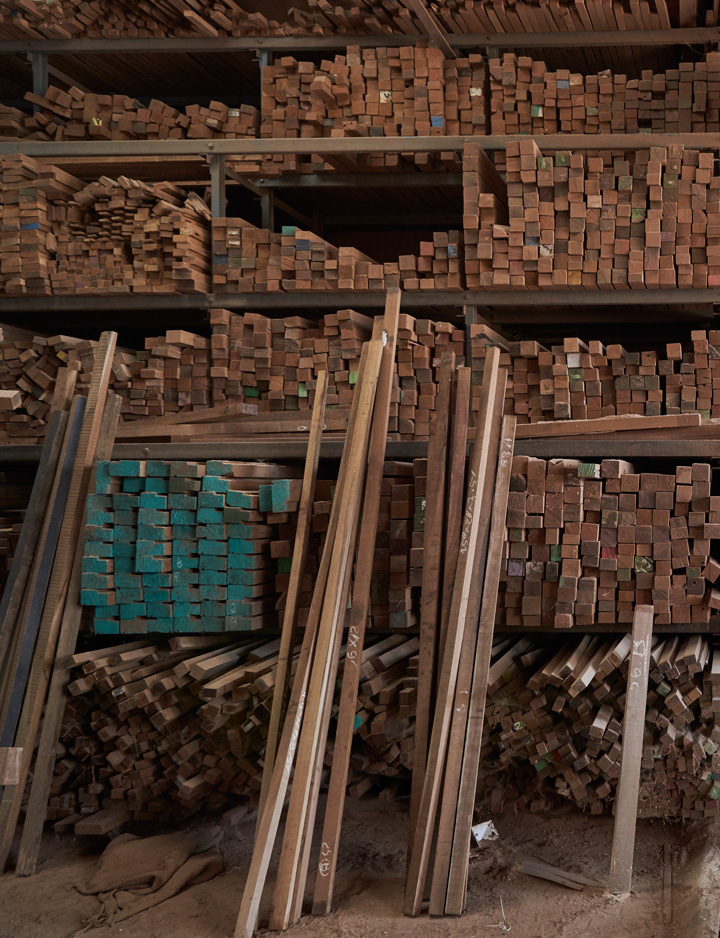
Timber and Cane – Raw materials
The wood we use for most of our furniture is Burma Teak (Scientific name: Tectona Grandis). Teak is extremely robust and resistant to borers and other pests. It has a characteristic golden brown shade and is great for making chairs and tables. We use both reclaimed timber and new timber.
Reclaimed timber is sourced from rafters of old buildings that are demolished and usually over a 100 years old. We carefully examine the rafters and choose only those rafters that are of a quality and size suitable for our furniture. These rafters are then cut into planks and planed to the required dimensions in our workshop.
We purchase new timber in the form of logs from reputed and responsible timber merchants who source ethically harvested timber. We verify the origin certificate of every batch of new timber we purchase. New timber is seasoned in kilns and naturally aired in our warehouse for several months to make them perfect for furniture making.
Many of the chairs we make have cane seats and backs. Cane is obtained by peeling flat strips from the outer edges of rattan reeds. Cane is a very resilient material and our handcrafted cane seat and back can last for several years without sagging if maintained well.

The Forest Stewardship Council® (FSC®) is a global, not-for-profit organization dedicated to the promotion of responsible forest management worldwide. FSC® defines standards based on agreed principles for responsible forest stewardship that are supported by environmental, social, and economic stakeholders. To learn more, visit www.fsc.org
The Scientific Certification Systems, Inc., (SCS) Kingfisher certification mark signifies products and services that deliver proven environmental, social and quality benefits.
At Phantom Hands, they are very proud to be an FSC® certified manufacturing facility. They strive to reach the highest standards in any process that they employ. It signifies that their products come from responsible sources—environmentally appropriate, socially beneficial and economically viable.
Philanthropy / Supporting CCA
Phantom Hands supports research programs at the Canadian Centre for Architecture (CCA), an international research institution and museum based in Montreal, Canada.
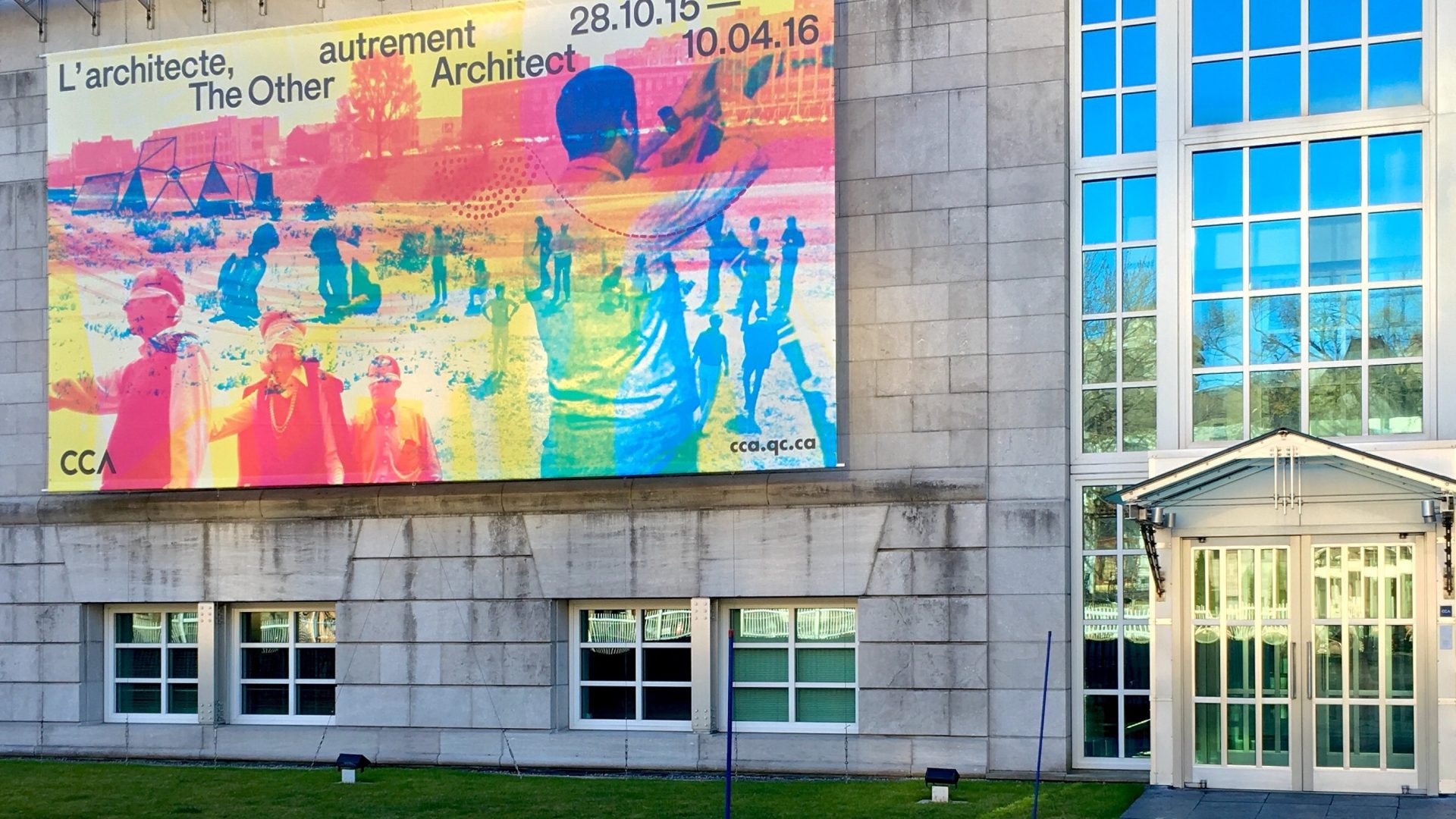
Pierre Jeanneret’s archives pertaining to his work in Chandigarh were gifted to the Canadian Centre for Architecture CCA by his niece Jacqueline Jeanneret. These archives comprise 8 linear meters of material including architectural drawings, photographs, letters, etc.
In 2016 Phantom Hands made a donation to the CCA to cover expenses related to digitization of documents and images from the Jeanneret archives. This project made the archives easily accessible to architects, historians, students and anybody interested in the story behind Chandigarh’s creation.
In 2019 Phantom Hands followed this up by a donation to the CCA’s Find and Tell program, which promotes new readings of archival holdings that highlight the intellectual relevance of particular aspects of the CCA Collection today. It is conceived as a series of residencies in which invited experts are asked to put forward arguments about the CCA’s holdings by making a significant selection and interpretation of material within an archive or the photography collection. The donation from Phantom Hands will specifically be used to offset expenses directly associated with the Find and Tell residency of Dr. Sangeeta Bagga, Professor at the Chandigarh College of Architecture. Dr. Bagga’s study of the Pierre Jeanneret archives at the CCA is resulting in a curated selection of items that will be made available through the CCA website, accompanied by an essay that supports her specific curatorial approach.
Gallery Address
Via Ciovasso 11,
20121 Milano
Italy
info@inodasveje.com
tel. +39 02 3655 3859
Opening Hours
Monday — Sunday by appointment
info@inodasveje.com
cell / WhatsApp : +39 3498941015
Philosophy
“Chairs Nobody Else Can Make” is the pillar of our Passion
© INODA SVEJE SRL – VAT Nr. IT12818080967 – c.f. 12818080967 – SDI. T9K4ZHO


